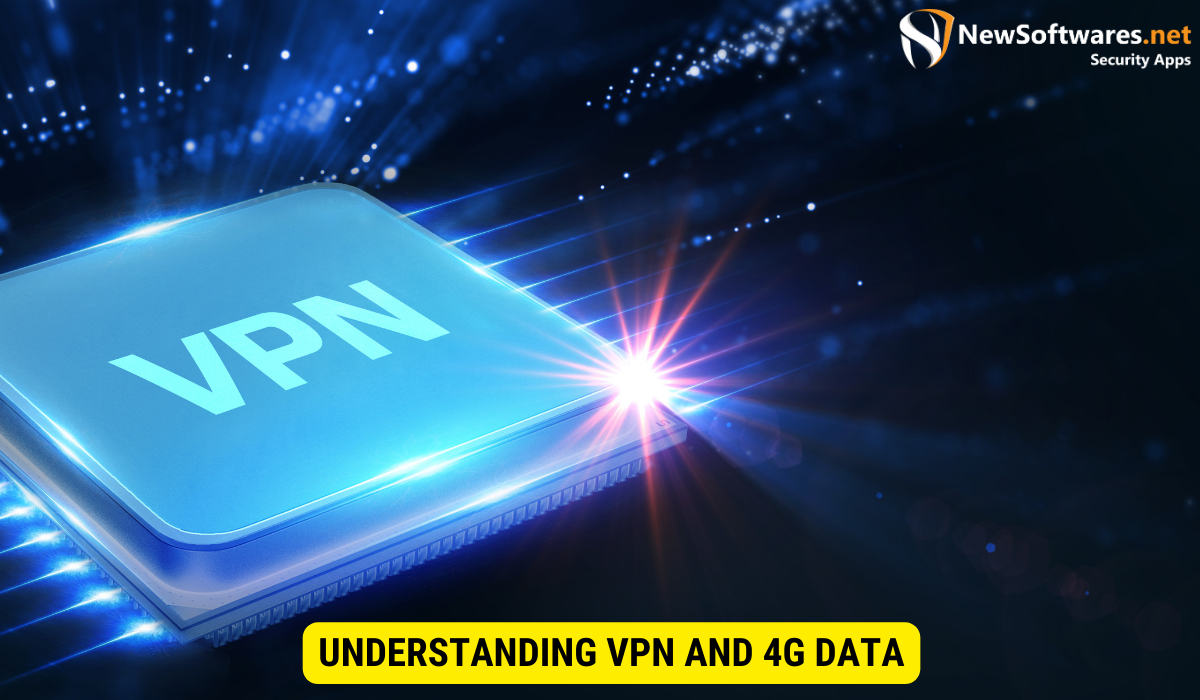VPN offers superior security for online activities compared to 4G Data, primarily due to its end-to-end encryption, ability to mask IP addresses, and enhanced privacy features. While 4G Data provides secure data transmission, VPN covers a broader range of security aspects, making it more effective in protecting sensitive information.
In today’s digital age, security is a top concern for internet users around the world. With cyber threats and online privacy breaches becoming increasingly common, it’s crucial to take steps to safeguard your online activities. Two popular options that offer enhanced security are VPN (Virtual Private Network) and 4G Data. But which one is more superior in terms of protecting your sensitive information? Together, we will dive deep into the world of VPN and 4G Data and compare their security features to help you make an informed decision.
Understanding VPN and 4G Data

Before we delve into the comparison, let’s understand what VPN and 4G Data are and how they work:
What is a VPN?
A Virtual Private Network (VPN) is a technology that creates a secure and encrypted connection between your device and the internet. By routing your internet traffic through a VPN server, it masks your IP address and encrypts your data, preventing third parties from intercepting or accessing your online activities.
What is 4G Data?
4G Data, on the other hand, refers to the fourth generation of mobile network technology. It provides high-speed internet access on mobile devices via cellular networks. When you connect to the internet using 4G Data, your data transmission is encrypted, making it more secure compared to older generations of mobile networks.
The Role of VPN in Online Security
Now that we have a basic understanding of VPN, let’s explore how it enhances your online security:
How VPN Protects Your Data
VPN encrypts your internet traffic, making it nearly impossible for hackers or eavesdroppers to decipher. It creates a secure tunnel between your device and the VPN server, ensuring that your data remains protected even on public Wi-Fi networks.
Furthermore, a VPN hides your IP address, making it difficult for websites or online services to track your online activities. This adds an extra layer of privacy and anonymity, reducing the chances of your personal information being compromised.
Limitations of VPN Security
While VPN provides robust security, it does have certain limitations. Firstly, VPN performance can vary depending on the server location and network congestion. Connecting to a VPN server located far away may result in slower internet speeds.
Additionally, some online services and websites may block or restrict access to VPN users. While this is less common nowadays, it’s important to be aware that not all websites may be accessible when using a VPN.
The Role of 4G Data in Online Security
Now let’s discuss how 4G Data contributes to enhancing your online security:
How 4G Data Protects Your Information
4G Data network technology incorporates robust encryption protocols to safeguard your data transmissions. This encryption ensures that your sensitive information remains protected while you browse the internet or use online services on your mobile device.
Moreover, the inherent security features of 4G Data, such as mutual authentication and secure tunnels, make it difficult for hackers or malicious actors to intercept or manipulate your data packets.
Limitations of 4G Data Security
While 4G Data offers enhanced security, it’s important to note that it protects your data only during transmission. Once your data reaches its destination, it may be vulnerable to security risks depending on the security measures implemented by the website or online service you are accessing.
Additionally, if you switch to a non-encrypted Wi-Fi network while using 4G Data, your data may become susceptible to interception or unauthorized access.
Comparing VPN and 4G Data Security
Now that we have explored the individual roles of VPN and 4G Data in online security, let’s compare them head-to-head:
VPN Security vs. 4G Data Security: A Detailed Comparison
VPN and 4G Data offer different layers of security, and their effectiveness depends on various factors. VPN provides end-to-end encryption and hides your IP address, making it effective in protecting your privacy and securing your data. However, its performance may be affected by server location and potential blocks by websites or services.
On the other hand, 4G Data provides encryption during data transmission, keeping your information secure while browsing the internet or using online services on your mobile device. However, it does not provide the same level of privacy and anonymity as VPN.
Factors to Consider When Choosing Between VPN and 4G Data
When determining which option is superior for your online activities, consider the following factors:
- Your primary security concerns: If privacy and anonymity are your top priorities, VPN may be the better option. But if you primarily want secure data transmission while using mobile networks, 4G Data should suffice.
- Usage scenarios: Think about where and how you primarily use the internet. If you frequently connect to public Wi-Fi networks, VPN can provide an added layer of security. However, if you mainly use secure and trusted networks, 4G Data alone may be sufficient.
- Performance requirements: Consider your internet speed requirements and the impact a VPN may have on your connection. If you require consistent high-speed internet access, 4G Data may be the better choice.
- Cost considerations: Compare the cost of VPN subscriptions, which are typically monthly or annual, with the cost of data plans for 4G networks. Factor in your budget and the value you place on enhanced security.
- Compatibility with devices: Ensure that the option you choose is compatible with the devices you use. VPNs typically support a wide range of devices and operating systems, while 4G Data is limited to mobile devices with cellular connectivity.
Making the Right Choice for Your Online Activities

Choosing between VPN and 4G Data ultimately depends on your specific online security needs. To make an informed decision, assess your requirements based on the factors discussed above. Identify your primary concerns and preferences to determine which option aligns better with your needs.
Assessing Your Online Security Needs
Ask yourself the following questions:
- What online activities do I engage in frequently?
- Do I frequently use public Wi-Fi networks?
- How important is privacy and anonymity to me?
- What is my budget for enhancing online security?
Answering these questions will help you identify the key aspects that matter most to you and guide you in making the right choice.
Choosing Between VPN and 4G Data Based on Your Needs
Based on your assessment, select the option that aligns best with your requirements. If privacy, anonymity, and flexibility are of utmost importance, investing in a reputable VPN service might be the right decision. Alternatively, if secure data transmission and convenience on mobile devices are your top priorities, relying on 4G Data could be sufficient.
Key Takeaways
As you consider the security options for your online activities, keep the following key takeaways in mind:
- VPN provides enhanced online privacy and data encryption, making it suitable for individuals focused on maintaining anonymity and securing their data throughout the entire internet journey.
- 4G Data offers secure data transmission on mobile devices, making it a viable option for users who primarily require secure connectivity while using mobile networks.
- Consider your specific online security needs, usage scenarios, performance requirements, cost considerations, and device compatibility when choosing between VPN and 4G Data.
- Assessing your online activities and preferences will help you determine the option that aligns best with your requirements.
- No matter which option you choose, it’s essential to practice good internet hygiene by using strong passwords, keeping your devices updated, and being cautious of phishing attempts.
Frequently Asked Questions (FAQs)
Can I use VPN and 4G Data together for maximum security?
Yes, you can use VPN while connected to a 4G Data network to enhance your online security further. This combination will provide both encryption and secure data transmission.
Is VPN legal?
In most countries, using VPN for personal use is legal. However, it’s essential to comply with relevant laws and regulations and avoid using VPN for illegal activities.
Will VPN slow down my internet speed?
Connecting to a VPN server may result in slightly slower internet speeds due to the additional encryption and routing processes. However, the impact on speed can vary depending on various factors, including your internet connection speed and the VPN server’s location.
Can I access geographically restricted content using 4G Data?
While 4G Data allows you to access the internet anywhere that has cellular coverage, some content may still be restricted based on geolocation. To bypass such restrictions and access geographically restricted content, a VPN would be a more suitable solution.
Can I trust the security of public Wi-Fi networks?
Public Wi-Fi networks can be vulnerable to security risks, such as eavesdropping and interception. Utilizing a VPN while connected to a public Wi-Fi network adds a layer of encryption to protect your data from potential threats.
Conclusion
In the battle between VPN and 4G Data for superior online security, there is no definitive winner. Both options offer significant security enhancements, albeit through different mechanisms. The choice between VPN and 4G Data ultimately depends on your individual online security needs, usage scenarios, performance requirements, cost considerations, and device compatibility. Understanding the strengths and limitations of each option allows you to make an informed decision and take control of your online security. Remember to prioritize good internet hygiene practices and stay vigilant against potential threats, regardless of the option you choose.
